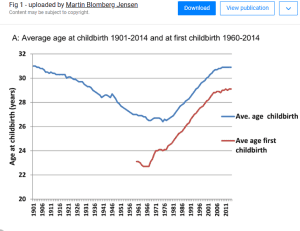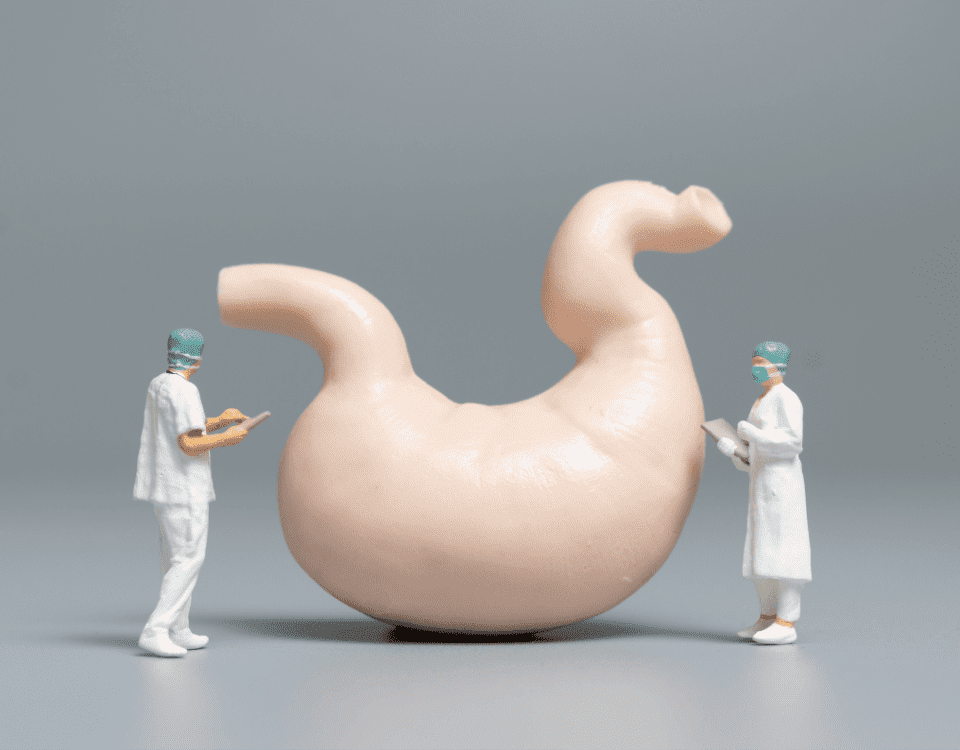
Struggling to fall pregnant due to obesity? Wondering whether you can have a safe pregnancy or a C-section after bariatric surgery?
Dr Jason Winnett, Bariatric and Laparoscopic Surgeon from Winnett Specialist Group, answers the most common patient questions about pregnancy after bariatric surgery.
Why is bariatric surgery so common in women of reproductive age?
“When it comes to bariatric surgery in Australia, women are 3.6 times more likely than men to have a procedure at any age, with many of them undergoing surgery in their reproductive years,” says Dr Winnett.
“So, ‘Will I still be able to have a baby?’ is one of the most frequent questions I’m asked.”
He explains many women choose surgery at younger ages not only to improve fertility but also to reduce the risks of pregnancy complications such as gestational diabetes or having a baby that is significantly larger than average (foetal macrosomia).
What are the “modern challenges” of infertility?
Maternal age is now higher than ever.
“In 1961, the average age for first-time mothers was 23. Today, it’s 30,” Dr Winnett says.

“More than a third of women are having their first child between 30 and 37 – a time when fertility naturally declines. Add obesity into the mix, and it’s a double challenge, because obesity is linked to anovulation, or the failure to release an egg.”
Research supports this: a large study of more than 600 women in Epidemiology found women with a BMI over 27 were three times more likely to experience infertility.
“The good news is that getting ‘fit for fertility’ can make a big difference,” says Dr Winnett. “Weight loss surgery, such as Sleeve or Bypass surgery, can help women who have struggled to conceive finally fall pregnant. In fact, one study showed that losing just 10% of body weight increased conception rates from 54% to 88%.”
How does bariatric surgery improve the menstrual cycle, fertility and pregnancy outcomes?
“Obesity can impact menstrual cycle in many ways,” says Dr Winnett. “Outside of anovulation, obesity can cause earlier periods, irregular cycles and heavier periods. Polycystic Ovarian Syndrome (PCOS), which is often linked with obesity, also impacts fertility.”
After bariatric surgery, many women experience more regular cycles, improved ovulation, and better outcomes with PCOS and diabetes, all of which can significantly boost fertility.

How long should I wait to fall pregnant after bariatric surgery?
Most weight loss surgeons and GPs would recommend waiting at least 3 – 6 months before trying to conceive, says Dr Winnett.
“This gives your body time to lose weight safely, stabilise nutritionally, and recover from surgery,” Dr Winnett explains. “We also advise contraception during this period.”
He says studies show that falling pregnant too soon after surgery, e.g. within the first 3 months of a bariatric procedure can affect long-term weight loss. “Waiting a little longer helps mitigate risks of gestational diabetes, gallstones, hypertension and also fetal complications.”
Should I have bariatric surgery before or after pregnancy?
Many women ask whether surgery is best before having children or later in life.
“Untreated obesity does increase the risk of obstetric complications,” Dr Winnett says.
One large study published in the New England Journal of Medicine compared women who had bariatric surgery before pregnancy with women of similar BMI who had not. The surgery group had:
- Lower rates of gestational diabetes (1.9% vs 6.8%)
- Lower risk of large-for-gestational-age babies (8.6% vs 22.4%)
Both groups had the same risk for congenital malformations.
Downsides in the bariatric group included slightly shorter gestation (4.5 days) and a small increase in stillbirth or neonatal death, although such events were rare and the difference was not statistically significant.
“This study gives women important information when deciding whether to have surgery before or after pregnancy,” Dr Winnett says.
What if I have anaemia after bariatric surgery?
“It is common after bariatric surgery to have anaemia or iron deficiency,” says Dr Winnett.
“On top of that, anaemia is also common in pregnancy. This usually happens because your body isn’t absorbing enough vitamins or minerals such as B12, iron, or folate,” Dr Winnett explains. “That’s why regular blood tests are essential.”
“Your doctor can run blood tests to prescribe vitamins to help with anaemia, and a dietitian can also review your diet for certain foods,” says Dr Winnett.
“If you usually take a daily multivitamin after weight loss surgery, it’s important to switch to a prenatal vitamin, ideally a few months before becoming pregnant. The folic acid in prenatal vitamins plays a key role in reducing the risk of birth defects, including neural tube defects.”
He says patients should avoid taking additional vitamins unless recommended by their doctor.
“Your GP or specialist should check your blood tests around 3 months after surgery. These results will show whether your stomach is absorbing nutrients and vitamins properly. If not, they may recommend a vitamin injection or an iron infusion through an IV.”
Do I need a C-section after bariatric surgery?
“Bariatric surgery alone is not a reason to have a C-section,” says Mr Winnett. “Many of my post-surgery patients go on to have healthy vaginal deliveries.”
What’s most important is that your obstetrician knows the type of procedure you had whether it was a Gastric Sleeve, Gastric Band, and or a Gastric Bypass.
“Rare complications can occur at any time, so if you experience abdominal pain, nausea, or vomiting during pregnancy, tell your obstetrician immediately,” he advises.
Pregnancy after bariatric surgery: the bottom line
Yes, it’s possible to have a healthy pregnancy after bariatric surgery. In fact, weight loss surgery often improves fertility and reduces risks during pregnancy.
The key is timing, preparation, and support:
- Wait at least 3–6 months before trying to conceive
- Prioritise nutrition and regular blood tests
- Work closely with your GP, surgeon, and obstetrician
- Don’t be afraid to ask questions or seek help early
At Winnett Specialist Group, we support many women who are considering bariatric surgery as part of their journey to motherhood.Our role is to guide you through careful assessment, surgery when it’s the right option, and the ongoing post-operative months where safe weight loss and nutritional stability matter most.
Importantly, our care goes beyond surgery. With access to our holistic team including dietitians, psychologists, and exercise coaches, you’ll have the guidance and support you need to build a strong foundation for sustainable weight loss and long-term health.
If you’d like to explore whether bariatric surgery is the right step for you, please get in touch with our team at Winnett Specialist Group.

Dr Jason Winnett
Laparoscopic and Bariatric Surgeon
P (03) 9417 1555 admin@winnettspecialistgroup.com.au
www.winnettspecialistgroup.com.au
Queens Terrace, 382 Victoria Parade, East Melbourne 3002
Australia’s Mothers and Babies, AIHW, 2025
Body Mass Index and Ovulatory Infertility, Epidemiology, 1994
Outcomes of pregnancy after Bariatric Surgery, NEJM, 2015
Pregnancy following bariatric surgery management, Obesity Surgery 2016
The Conversation, How Does Being Overweight Affect My Fertility?
National Demographic 2023, Does a woman’s fertility really plummet at age 35?



